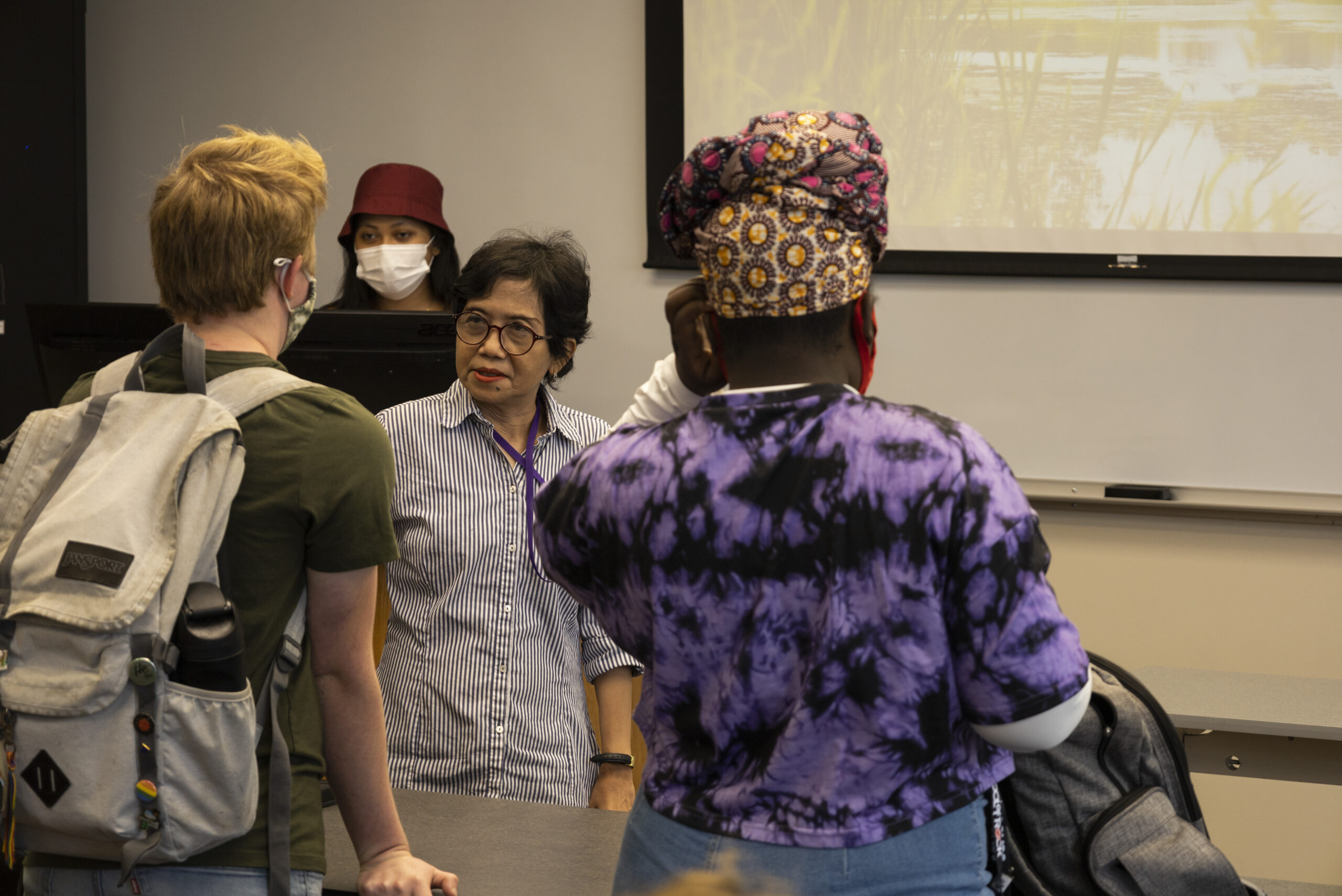Goshen College is welcoming Endah Setyowati, a visiting global scholar from Duta Wacana Christian University in Yogyakarta, Indonesia, to campus this year.
Setyowati is the third professor from Duta Wacana Christian University to become a visiting global scholar at Goshen College.“They asked me to apply for the position as an Indonesian professor at Goshen,” she said, “but I don’t know… I’m like, I’m not so young anymore! Why don’t you ask the younger professors?”
Despite her initial hesitancy, Setyowati eventually applied for and received the position. She is now teaching two courses: Indonesian I, a language and culture class preparing students for the upcoming spring 2022 Indonesia Study-Service Term (SST); and Transforming Conflict and Violence, a peace, justice and conflicts studies course.
With more than 20 years of experience in conflict resolution, Setyowati describes herself as a “practitioner” of peace.
“In Indonesia, there is no resource who can show how to give a training in peace and conflicts,” she said. “We have none ‒ [except] mine.”
Setyowati holds a master’s degree in coexistence and conflict from Brandeis University in Waltham, Massachusetts, and a master’s degree and doctoral degree in peace and conflict resolution from Gadjah Mada University in Yogyakarta, Indonesia. She has led numerous conflict resolution trainings with Duta Wacana Christian University throughout Indonesia.
Setyowati says that the first thing she hears from people who have experienced military occupation or religious conflict is the phrase: “our life before conflict.”
“It means they miss ‘this other,’” she said. “They miss the situation between conflicts. But they don’t know how to start.”
Throughout her career, Setyowati has encountered several obstacles during conflict resolution trainings, including male-led opposition to her teaching.
“When you are a woman and you come to give a training, there is a lot of men,” she said. “And they start to bully you, [saying:] ‘Why you come here? You are so small!’”
Setyowati tries to work mainly with women to resolve conflict within their communities.
“I lead the initiative from the women,” she said. “But, unfortunately, nobody writes about their role… the role of women in making peace is under-communicated.”
Many of the conflicts that Setyowati is challenged to resolve arise from differences in religious identity.
“In Indonesia,” she said, “you can say, ‘I’m single,” but you cannot say, ‘I have no religion.’ Religion is very important in our country.”
Growing up in a “mixed religion family,” Setyowati was exposed to different religious beliefs from a young age.
“My father was Muslim and my mother was Christian,” she said. “When they married, they kept their own faith… but [my siblings and I] went to Sunday school until 12 years old. Our mother sometimes tell us: ‘If you stay to be Christian, it’s ok, but if you want to learn to be Muslim, you can learn from your father’s side.’”
When Setyowati turned 18, her parents asked her to choose to be Muslim or Christian. She and one of her siblings chose Christianity, while her three other siblings chose Islam.
“So we celebrate Ramadan and also Christmas,” Setyowati said. “And since the beginning, I have never eaten pork… and at Christmas, sometimes [my siblings] drink beer. It’s kind of an agreement.”
Setyowati likes to share these stories about her family and life in Indonesia with her students. So far, she says, her experience on the Goshen campus has been a positive one.
“I feel so warm and well-received as a new person,” she said. “As a teacher, we have to have a plan B, we have to have Plan C, Plan D… but you have to remember, everything I do, I do it for the student. To become teacher is not an option; I see it as a calling.”




